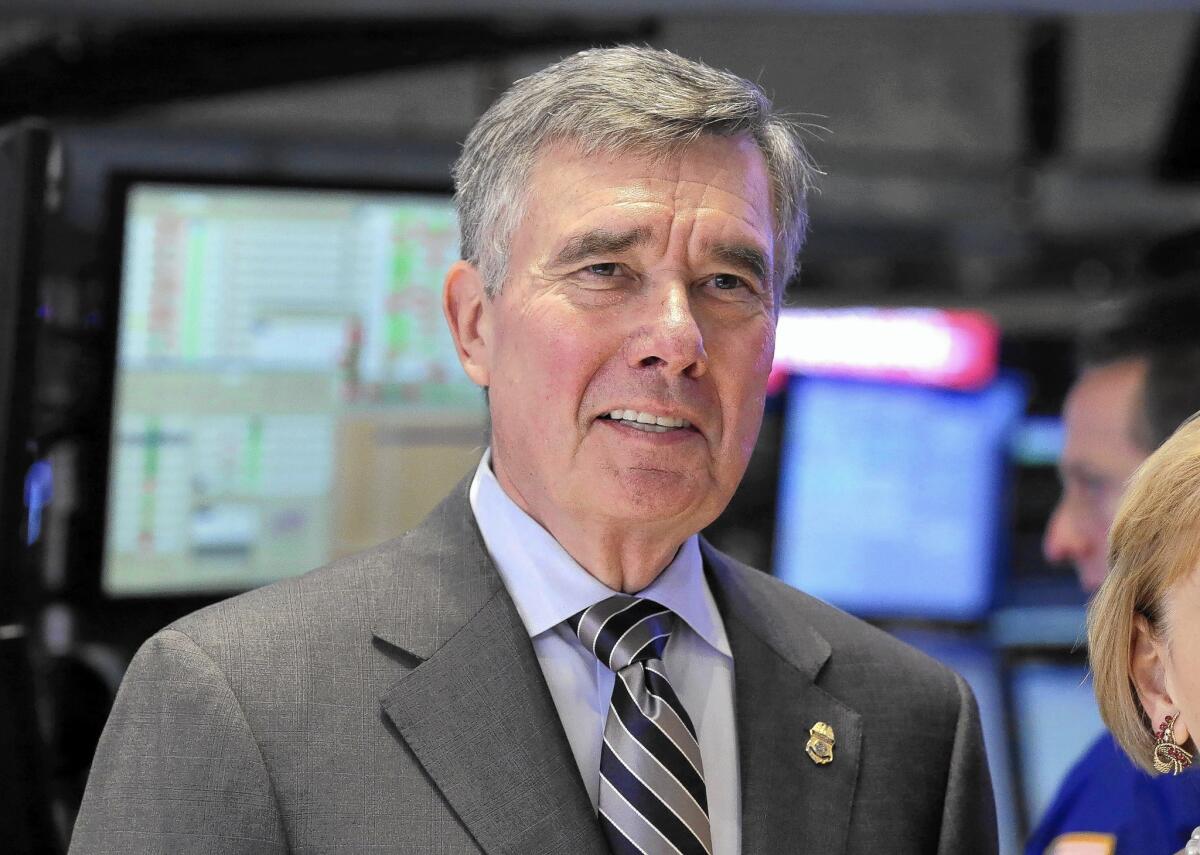Internal effort announced to investigate Border Patrol abuses

Customs and Border Protection Commissioner R. Gil Kerlikowske said, “We own this problem and we own the responsibility to ensure that we are doing a good job.”
- Share via
Reporting from WASHINGTON — In an effort to speed up inquiries into Border Patrol agents, the agency overseeing them will criminally investigate officers suspected of excessive use of force and other abuses, its leader said Thursday as he announced changes to the agency’s response to such allegations.
The new powers will allow U.S. Customs and Border Protection to more quickly discipline officers who are guilty of wrongdoing and more openly discuss deadly shootings and abuse allegations, Commissioner R. Gil Kerlikowske said, because the agency won’t have to wait until an outside investigation is complete.
Kerlikowske, who took over as Customs and Border Protection commissioner in March, acknowledged that the agency hadn’t conducted thorough investigations in the past.
“We are a large organization — we own this problem and we own the responsibility to ensure that we are doing a good job,” Kerlikowske told reporters.
After dozens of shootings on the Southwest border, the agency has faced mounting pressure to reform how and when Border Patrol agents are permitted to use deadly force and how potential abuse of force is investigated. The shootings and the unwillingness of officials to explain why agents opened fire have generated criticism from police experts and protests from Mexican officials.
Mark Morgan, an FBI special agent who has been assigned to run Customs and Border Protection’s internal affairs unit, said his office was taking a deeper look at 14 shootings and 141 allegations of abuse to determine whether criminal charges should be filed. Morgan acknowledged that the Border Patrol had not disciplined any agents in deadly force investigations in a decade.
The change is positive as long as it is implemented sincerely and effectively, said Michelle Brane, director of migrant rights and justice at the immigration advocacy group Women’s Refugee Commission.
“Based on their history, we are concerned they may not be neutral investigators of their own officers,” Brane said. “But at the beginning, we have to give them a chance to do so.”
With its new authority, granted by Homeland Security Secretary Jeh Johnson, the internal affairs office will train investigators to respond to each use-of-force allegation, Kerlikowske said.
The change brings Customs and Border Protection in line with other law enforcement agencies around the country, he said.
“Those people that are involved in this conduct or criminal activity have to be held accountable,” Kerlikowske said.
A new panel of outside law enforcement experts will review cases and make recommendations to the agency on officer conduct, and managers will be trained on how to speak to the press after deadly force is used or abuse is alleged, Kerlikowske said.
Shawn Moran, spokesman for the National Border Patrol Council, said he applauded the plan to allow Border Patrol officials to speak more publicly during such investigations, noting that it could ease public criticism.
“They have really muzzled the Border Patrol chiefs — people running their sector should really be able to let people know what is going on on the border,” Moran said.
Kerlikowske also announced that Border Patrol agents would test body-mounted cameras this year but would not use them in the field until privacy concerns were addressed. For years, activists have asked agents to wear lapel cameras in hopes that a recording could improve treatment of people whom the agents have detained as well as discourage false allegations of abuse.
More to Read
Sign up for Essential California
The most important California stories and recommendations in your inbox every morning.
You may occasionally receive promotional content from the Los Angeles Times.











